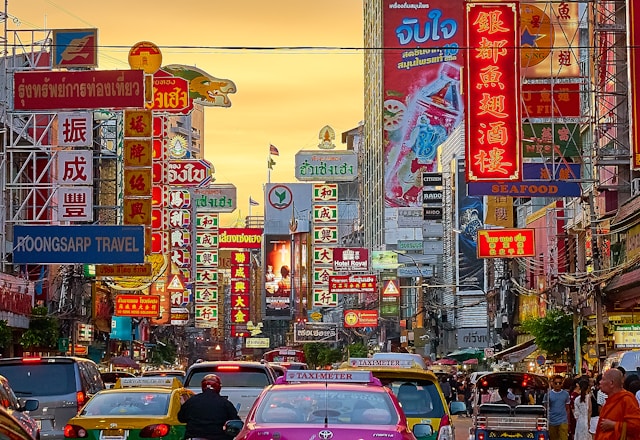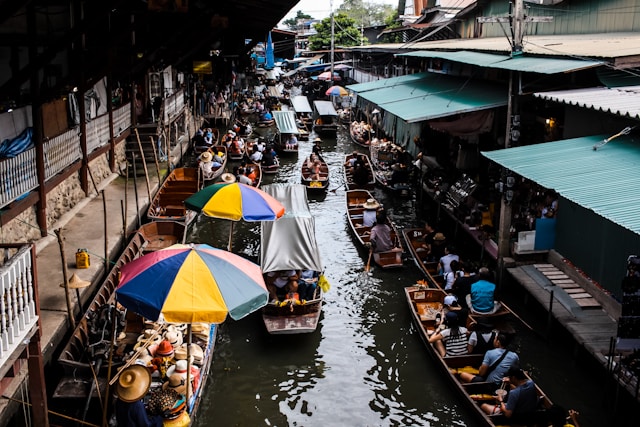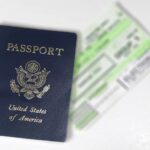
As remote work and the digital nomad lifestyle continue to rise, many countries have introduced visa programs tailored to international remote workers. Thailand, one of the most popular destinations for tourism and living in Asia, has launched a visa specifically for digital nomads, attracting global remote workers to settle and work there. This article provides an in-depth overview of Thailand’s digital nomad visa, including its background, application requirements, benefits, and application process, helping interested individuals better understand this innovative visa program.
1. Background of Thailand’s Digital Nomad Visa
Thailand has long been a popular destination for global travelers and expats due to its rich culture, low cost of living, friendly communities, and beautiful natural scenery. As the trend for remote work strengthened post-pandemic, the Thai government recognized the potential of digital nomads and launched the Long-Term Resident (LTR) Visa program in 2022. One important category of this program is specifically designed for remote workers and digital nomads worldwide.
The Thailand digital nomad visa not only offers freelancers and remote workers the legal right to live in Thailand long-term but also allows them to work within the country without the complexities of traditional work visas.
2. Benefits of the Visa
The Thailand digital nomad visa offers a variety of benefits that make it an attractive option for digital nomads:
- Long-Term Residency
The digital nomad visa is valid for 10 years, split into two 5-year periods, providing a stable, long-term stay without the need for frequent renewals.
- Legal Work Rights
Digital nomads can legally work for international companies while residing in Thailand, without worrying about violating immigration or labor regulations.
- Tax Incentives
Under certain Thai government policies, digital nomads may qualify for tax reductions, especially those holding long-term resident visas and meeting specific income criteria.
- Family Accompaniment
The visa allows direct family members (spouse and children) of the applicant to legally reside in Thailand, making it easier for digital nomads to bring their families along.
- Multiple Entries
Holders of the digital nomad visa are allowed multiple entries into and out of Thailand, making it convenient for remote workers who need to travel frequently.
3. Application Requirements
To ensure that applicants for the Thailand digital nomad visa meet the necessary standards, the Thai government has set specific requirements. The main eligibility criteria include:
- Income Requirement
Applicants must demonstrate an annual income of at least $80,000. If their income falls between $40,000 and $80,000, additional financial assets or proof of investment in Thailand may be required.
- Employer Requirements
Digital nomads must either work for a foreign company or be self-employed, with their employer company having been operational for at least three years in a relevant sector.
- Health Insurance
Applicants must hold valid health insurance that covers all medical expenses during their stay in Thailand, ensuring their healthcare needs are met.
Digital Nomad Dilemma: Best Insurance Choices While Living in Thailand
4. Application Process
The application process for Thailand’s digital nomad visa is relatively straightforward. Applicants only need to submit their application online and provide the required documents upon approval. Below are the steps involved:
Applicants must complete an application form on the official website of the Thai Immigration Bureau and upload supporting documents, including passport copies, proof of income, and employment contracts.
- Wait for Approval
The Thai government will review the submitted application, with the approval process typically taking 30 to 60 days.
- Submit Original Documents
Once approved, applicants must submit their original passport and documents to the Thai embassy or consulate to finalize the visa process.
- Enter Thailand
After receiving the visa, applicants can legally enter Thailand, and upon arrival, they will receive the official digital nomad visa documentation.
5. Living and Working as a Digital Nomad in Thailand
Thailand offers not only a low-cost lifestyle but also an abundance of resources for remote workers. Whether it’s the refreshing work environment in beachside cities or the thriving coworking spaces and startup communities in cities like Bangkok and Chiang Mai, digital nomads can find a place that fits their work-life balance.
Thailand’s major cities such as Bangkok, Chiang Mai, and Phuket boast numerous modern coworking spaces equipped with high-speed internet, comfortable work environments, and plenty of networking opportunities.
The 5 Best Coworking Spaces in Bangkok
- Affordable Cost of Living
Compared to Western countries, Thailand’s cost of living is relatively low, allowing digital nomads to enjoy a high-quality lifestyle at a lower cost. Dining, housing, and entertainment are all affordable.
The 5 Best Coffee Places in Bangkok
- Rich Cultural Experiences
Living in Thailand not only provides a convenient work environment but also offers access to the country’s rich cultural heritage and cuisine. From temples and historical landmarks to street food, Thailand offers endless exploration and enjoyment.
Conclusion
Thailand’s digital nomad visa provides global remote workers with a legal, convenient option for living and working in the country. With a visa term of up to 10 years, a flexible work environment, and attractive tax incentives, Thailand is quickly becoming an ideal destination for digital nomads. Whether you are a freelancer, entrepreneur, or remote employee, Thailand offers the perfect place to achieve a balance between work and life.





